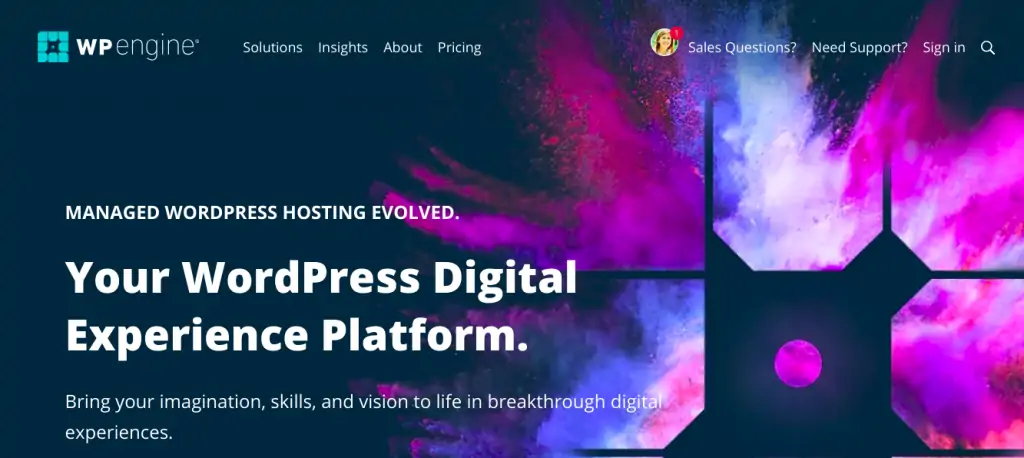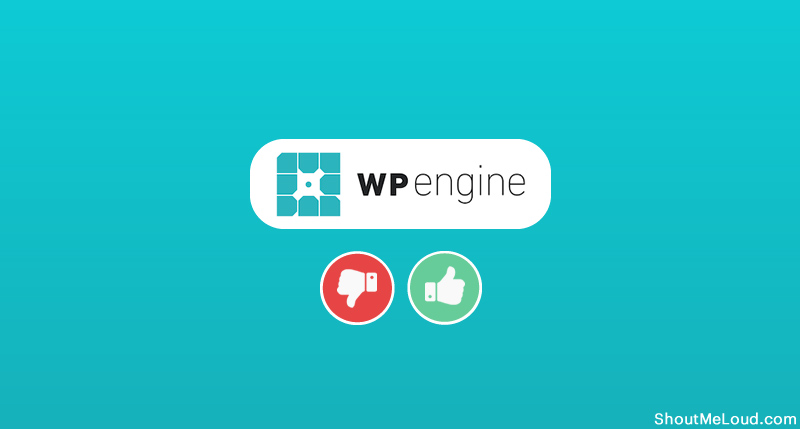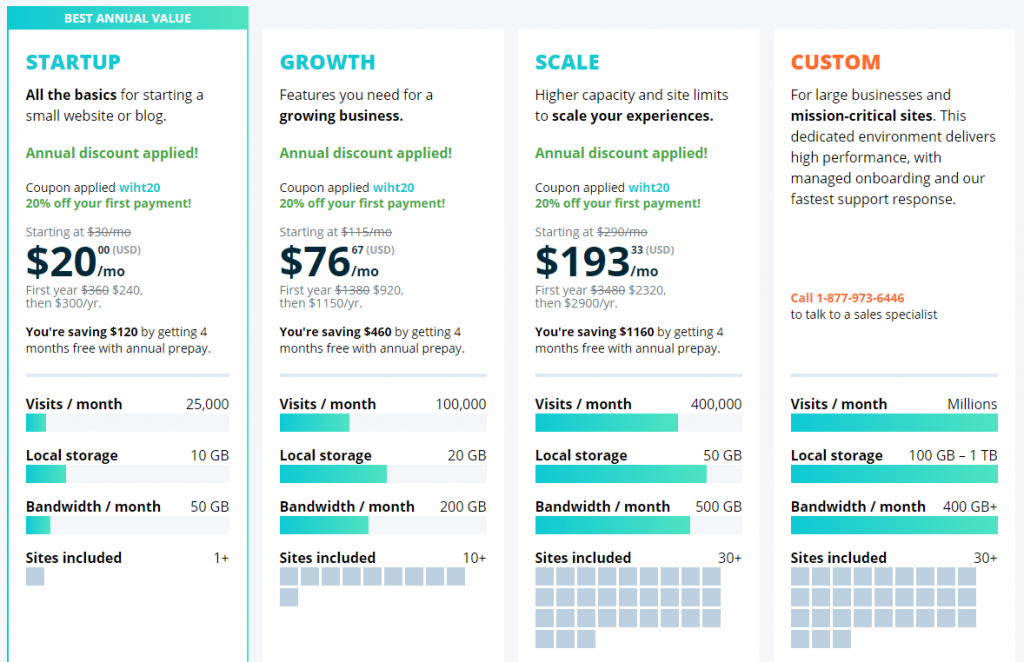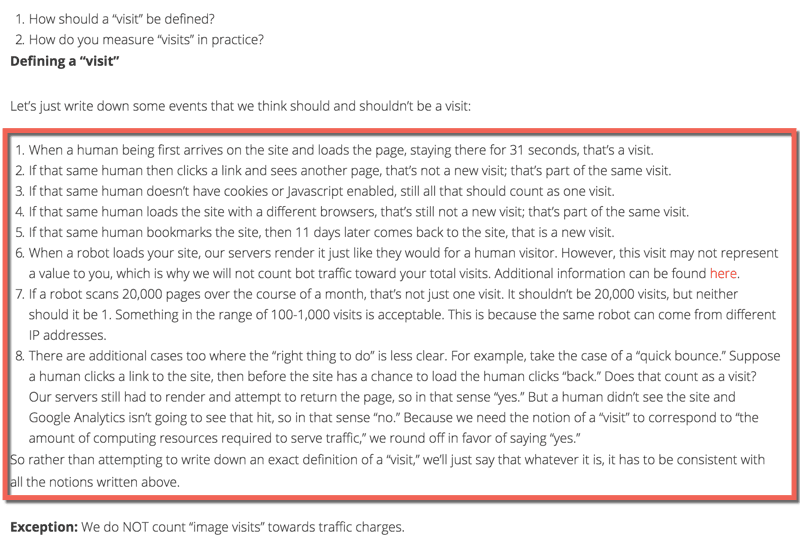If your WordPress site has out-grown its current hosting plan, chances are you’re looking for managed WordPress hosting. This type of hosting typically provides fast site load times and high performance.
WP Engine is one of the best-known providers of managed hosting, supporting personal sites, small businesses, and large companies like Asana, Rogers, and Telus.
In this review, we’ll take a close look at their hosting services including their security, code updates, staging environments, and customer support.

Pros and Cons of WP Engine
There is no one perfect host for every business. Since every business has different needs, hosting providers have evolved to offer a wide range of features, capabilities, strengths, and weaknesses.
Here are the most critical pros and cons of WP Engine you need to be aware of before you dive in.
Pros
- WordPress-specific support
- Fast, stable servers
- Free CDN, SSL, and themes
- Automatic site backups
Cons
- Relatively expensive
- No email support
- Some limits on plugins
Pros
There are plenty of advantages of using WP Engine. They tailor their hosting packages specifically to WordPress users, which allows them to provide the most appropriate hosting features.
They only offer managed hosting. This means that WP Engine makes sure your site loads fast, stays secure, and select software updates are tested and applied automatically to your site. For businesses looking to be more hands-off on the technical side, this service is incredibly useful.
Cons
One of the main pros of WP Engine can also be a con: if you don’t use WordPress, you are out of luck. In addition, some of the decisions WP Engine makes in the name of security can limit functionality for more experienced developers.
Background of WP Engine

When choosing a host, you are trusting them with a key aspect of your business. If your site goes down or if your host goes under, your business could be left in a lurch. Here is what you need to know about who WP Engine is and how they got started.
History
WordPress is the most popular content management system (CMS) available. Nearly 23% of the entire internet is powered by WordPress. That is because it allows users to create an attractive high-performing website — even if they have limited development skills. WP Engine is focused on WordPress.
What is WP Engine?
WP Engine is a website hosting provider aimed at providing managed hosting solutions specifically for websites using the popular CMS WordPress. They are based in the United States, but have offices and datacenters worldwide.
When Was WP Engine Founded?
WP Engine was founded on March 1st, 2010, by Ben Matcalfe, Bullen Wilson, and Jason Cohen. Co-founder Aaron Brazell was very active in the WordPress developer community and the three saw an opportunity to offer a better host for WordPress users.
Where is WP Engine located?
According to Crunchbase, WP Engine is headquartered in Austin, Texas. They currently have offices in San Francisco, San Antonio, London, and Limerick, Ireland.
Where are WP Engine’s Datacenters Located?
Choosing a datacenter located in geographic proximity to most of your visitors can increase site speed, which can benefit your SEO, increase security, and help simplify data management.
WP Engine has datacenters located all over the globe through both Google and AWS. These datacenters are in:
- Iowa
- South Carolina
- Oregon
- Belgium
- Taiwan
- Tokyo
- London
- Frankfurt
- Sydney
- Montreal
- Virginia
- Ohio
- Ireland.
Can I Choose My Own Datacenter Location?
You can easily choose the right datacenter for your site. New customers will select their datacenter while signing up for their plan.
Hosting Types and Plans

Now, let’s take a deep dive into the three main hosting packages WP Engine offers. Keep in mind, all packages are managed hosting plans, so they are a bit pricer than your average budget host.
All hosting plans include the following features.
- Genesis Framework
- 35+ Studio themes
- 24/7 chat support
- Dev, Stage, Prod environments
- Transferable sites
- Global CDN
- Automated SSL Certificates.
There are three main plans to choose from, plus the option of building a custom plan to fit your needs. Here’s a quick overview of the most important hosting plans and the features they provide.
Startup
The startup plan only allows you to install a single WordPress site, but it is the most affordable. It comes with all those features we went over earlier and supports up to 25,000 visits per month, 10 GB of local storage, and 50 GB of bandwidth per month.
Additionally, you can purchase the ability to host an additional site on this plan for a discounted rate.
Growth
When you need to support additional sites or more traffic, you move up to this tier of hosting.
It comes with a few extra features, but most importantly, it supports up to 100,000 total visits per month, and you can install up to 5 sites on it. This plan also offers 20 GB of local storage and 200 GB of bandwidth per month.
In addition to the features listed above, the Growth Plan also offers imported SSL certificates and 24/7 phone support.
Scale
This plan offers higher capacity and site limits and is designed for larger, growing businesses. It offers all the same additional features as the Growth plan, plus up to 400,000 visits a month, 30 GB of local storage, and 400 GB of bandwidth per month.
Custom
If none of the packages above meet your needs, you can build your own custom hosting package with larger traffic limits, more storage, and increased bandwidth options.
Plan Prices
Overall, the plans are not cheap. The three main plans are $30.00, $115.00, and $290.00 per month. That’s to be expected for advanced hosting.
However, the prices aren’t crazy either — definitely affordable for any serious business venture. Even if you’re just practicing WordPress development, the price could be worth it if you make use of the support.
What Kind of Hosting Does WP Engine Offer?
As we mentioned above, WP Engine has a range of plans designed to support all types of websites, from small business sites to huge, highly-trafficked ones.
WP Engine uses Google Cloud Platform for most of its plans, combined with a CDN (content delivery network). Select dedicated plans use the AWS (Amazon Web Services) platform.
Does WP Engine Use cPanel?
Since WP Engine only provides managed WordPress hosting, they don’t provide a standard control panel like cPanel or Plesk. Instead, they use a proprietary control panel.
The interface is clean and intuitive. The control panel is well-organized with a list of navigation links to the left. From the control panel you can access your CDN, sites, backup points and migration tools and more.
Adding things like an SSH key is easy via clear prompts on the control panel screen.
Resource Limits (Monthly Visitors Allowed)
The resource limits for WP Engine vary based on the hosting package you choose. They monitor the number of
visitors your site receives:
- Startup: 25,000 visits per month
- Growth: 100,000 visits per month
- Scale: 400,000 visits per month
- Custom: Millions+
- What Is WP Engine’s Uptime Guarantee?
- They promise an uptime of 99.95%, minus downtime due to scheduled maintenance.
Features
At first, it might not be obvious why it’s good that WP Engine powers huge sites.
The reason is that in order to power those sites, WP Engine has developed and refined advanced technology.
And while you don’t get access to all of those benefits, you do get access to many of them, even on the lowest tiered plan.
Here is a rundown of the most important features WP Engine offers.
Getting Started: Migration
Site migration can be a headache. Luckily, WP Engine makes it easy to move your site.
Will WP Engine Migrate My site?
Yes, sort of. There does not appear to be an option to have their support team do it, but they offer a hassle-free automated migration plan using the Automated Migration Plugin. This tool was created in partnership with Blogvault and released in January of 2019.
WP Engine Support
Aside from performance, the other area of WP Engine that really stands out is their support.
Many hosts outsource their support, which often results in some frustrating situations for customers.
WP Engine hires all of their own support and has over 100 full-time WordPress experts employed. That’s a key point; they all study and understand how to best use WordPress.
Support is available 24 hours a day, every day of the year. You can choose to get support through:
Live Chat
Email
Phone (not the lowest plan).
Video: WP Engine support staff
The last piece of the support puzzle is the WP Engine knowledgebase. It consists of hundreds of tutorials and guides for solving common problems.
It’s well categorized, making it easy to find what you’re looking for. Additionally, the articles are clearly written, with distinct steps and images to help you.
Billing and Money-Back Guarantee
WP Engine does not lock customers into long-term contracts. They allow you to choose a monthly plan that allows you to cancel your plan every month.
Additionally, they offer a 60-day money-back guarantee for new customers. However, this refund only applies to hosting services.
Simple and Automatic Backups

If a large website ever lost data because it was hacked or servers went down, it’d be a huge loss in revenue. So hosts like WP Engine have to develop robust backup systems, which you also get to take advantage of.
On WP Engine, you have access to snapshot backups.
A snapshot is a backup at a specific point in time that you can restore your website to as needed.
It takes a few seconds to create a snapshot yourself manually in your account. But WP Engine also takes a snapshot of your site at least once a day. If you accidentally brick your website you’ll be glad you have those backups.
Security
WP Engine automatically implements any minor updates to WordPress.
WordPress often has security issues because the program, plugins, and themes are often not kept updated by site owners.
Since so many websites use WordPress, it’s a big target for hackers, and it’s important to stay secure.
Automatic Updates
WP Engine automatically implements important security patches and WordPress core software updates.
You’ll receive two prior notices before the core updates are implemented. And you have the option to defer such updates for up to 60 days.
Additionally, they mitigate other threats (eg, DDoS attacks) to your website.
Staging
Staging allows you to quickly create 3 versions of your website.
The staging version of your website is where you test all your changes. Once everything looks and functions as you’d like, you push it to your “live” version where the public can see it.
You can also set up a development server.
This feature is included in every plan that WP Engine offers.
Server Performance
According to our tests, WP Engine provides stable and fast servers.
Over the year they tested, WP Engine’s uptime was 99.99% — just 4 minutes of downtime per month.
WP Engine’s speed was just as impressive. Page load speeds averaged 331 ms. This is much better than most hosts.
Why WP Engine Is So Fast
WP Engine claims that the sites they host run 4-6 times faster than on a typical host. They manage this in a few ways.
One way they do this is with EverCache.
EverCache is an advanced caching system developed by WP Engine for the sites they host.
While there are caching plugins in the WordPress plugin repository, it’s a struggle to configure them to achieve the same sorts of speed gains.
If EverCache doesn’t work as intended, WP Engine’s support team will configure any special rules that your sites need to make it work.
Page Performance Built-In
A final unique feature on WP Engine is that there’s a page performance tool integrated into your WordPress dashboard that breaks down your page load speeds.
Simply put, it analyzes all the steps of the page load, then tells you what parts are slow. It also provides recommendations on how to fix them.
You can set up automated reports so that you can see how any changes to your website affect page load speed over time.
WP Engine vs Bluehost

Bluehost provides a wide range of hosting plans, including three fully managed WordPress hosting packages: Build, Grow, and Scale.
Overall, these plans are cheaper and offer many features you won’t find on WP Engine.
For example, you can host unlimited websites, domains, and subdomains with no traffic limits. All plans also offer JetPack site analytics, 100 free premium themes, daily backups, malware protection, and domain privacy protection. They also specifically provide support for e-commerce stores.
Bluehost does not offer quite the same level of support as WP Engine does. In most cases, “unlimited” sites do not actually offer totally unlimited traffic and may not be able to support sites that experience massive spikes in traffic.
However, Bluehost does also offer several marketing tools, and the slightly more affordable price makes it attractive to many WordPress users.
Other WP Engine Alternatives
If you need a few more WordPress hosting options to consider, check out these hosts.
SiteGround: Great choice if you want WordPress-specific hosting, but can’t swing WP Engine’s prices. SiteGround packages offer fewer features, but start at $3.95 a month.
WordPress.com: If you need a bit less, but still want the support of WordPress experts, this is the way to go. They offer a total of five plans starting at just $3 a month
Flywheel: They offer cheaper plans (starting at $14 per month), but still provide very robust managed WP hosting plans. They also do not charge overage fees as WP Engine does.
WP Engine Coupon Code
Considering giving WP Engine a try for your website? You can use our code and save 20% off your hosting package:
Summary

Overall, WP Engine is the leading host when it comes to WordPress specifically. They provide professional-level performance and support.
That being said, it’s relatively expensive, which is why most sites hosted on WP Engine are designed to generate revenue.
If you’re building a WordPress site that could benefit from a high-performance host, visit WP Engine now.
Your Review of WP Engine
Are you a current or past customer of WP Engine? Would you recommend them? Please leave your comments below and let our visitors know what you think of WP Engine’s speed, features and customer service.

